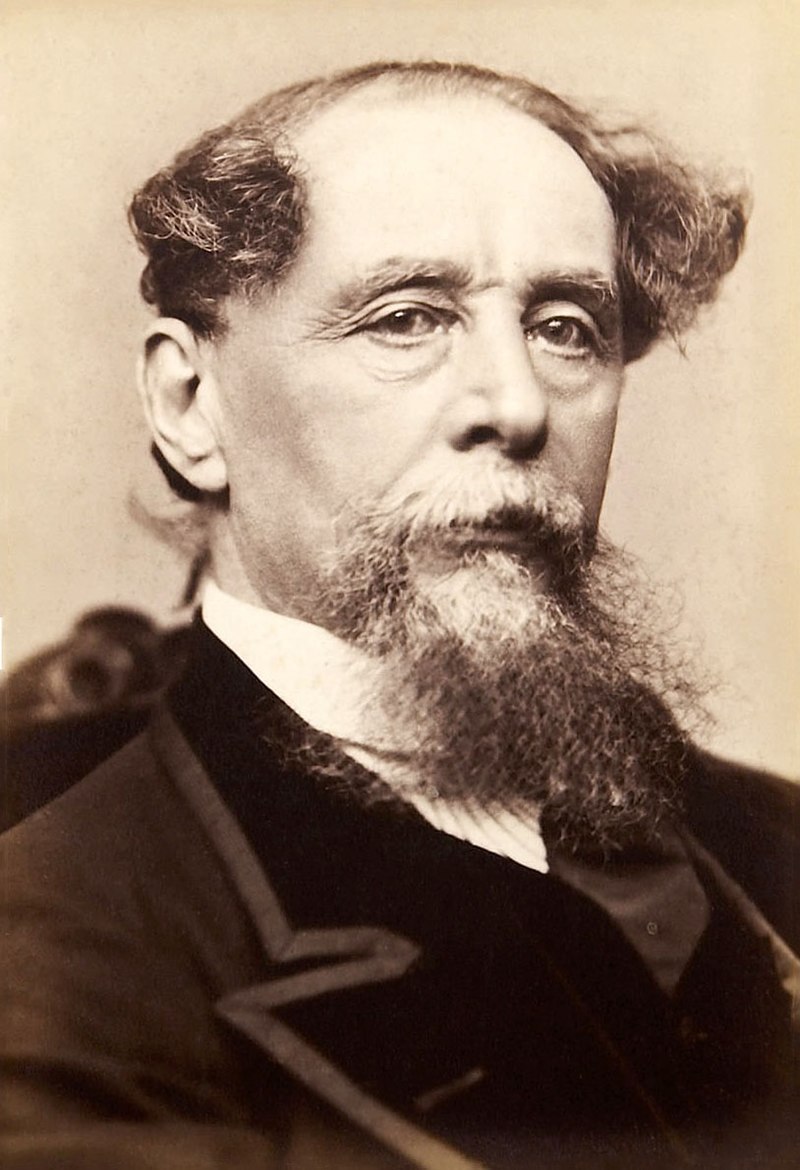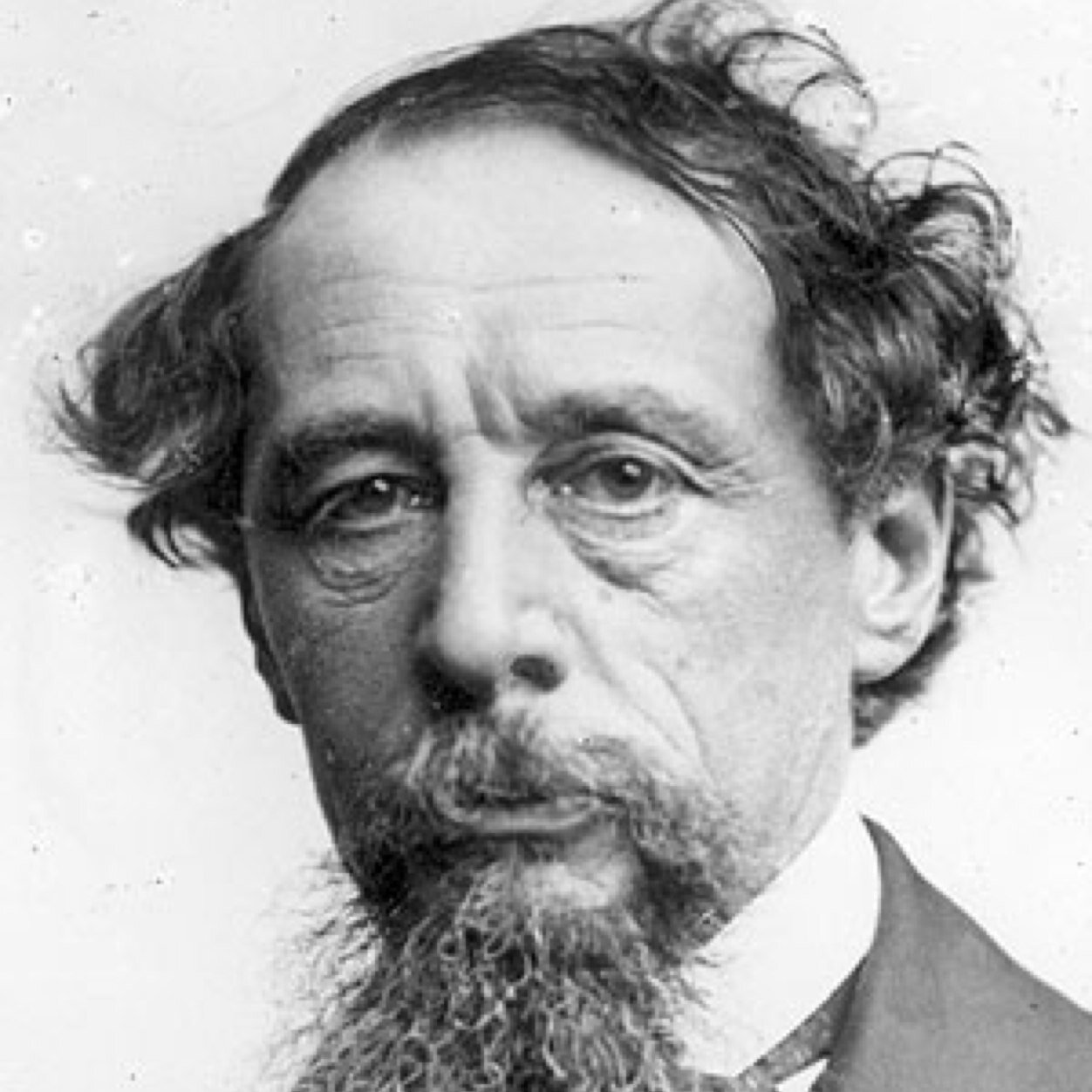Beyond Expectations: Re-reading Dickens
David Denby
The New Yorker
David Denby
The New Yorker
Fifty years was long enough, I suppose, to put off reading Charles Dickens again. I had read him, and loved him, in college—“Hard Times” and “Bleak House” and “Our Mutual Friend” were the most admired texts in the nineteen-sixties; and then, on my own, soon after college, I read “David Copperfield” and “Martin Chuzzlewit,” with its hilarious impressions of the newspaper-and-spittoon dominated America of the eighteen-forties. I knew a couple of the other novels because they had been read to me, after lunch, in seventh grade, at my New York private school. You could put your head down on the desk and go to sleep—no one would bother you. The rest of us listened. Our homeroom teacher, a woman with freckled skin and white hair named Ruth K. Landis, read first “Oliver Twist” and then “Great Expectations” in a steady dulcet voice. At the emotional climaxes, Miss Landis grew rather tearful, but no one mocked her. It was an enchanting way to launch the rest of the school day. I mention all this because my acquaintance with Dickens was more or less typical of what literary-minded, privileged boys and girls of a certain era enjoyed.
In any case, by my mid-twenties I had abandoned Dickens for Henry James, who was ever so much more worldly and intricate, and who had a finer, less melodramatic sense of evil (though there is always someone in James who is trying to gain control of your soul or your money or both). James left New York and Boston behind and set up in London and Rye; American civilization was insufficiently complicated for him, but Americans as individuals interested him a great deal. Dickens wrote nothing that meant as much to me and my friends as “The Portrait of a Lady,” with its high-minded, presumptuous, ambitious, and noble heroine, Isabel Archer.
In recent years, I put Dickens off again and again, which of course meant I was afraid I wouldn’t much like his books, afraid that the return might be akin to visiting, out of duty, a somewhat faded aunt or uncle and submitting to an embarrassing performance of patched-together jokes and moldy recollections, which might or might not be interesting—one’s interest in such meetings is often selfish—as a reflection of my own temperament at twenty. No doubt I feared finding that my own youth was a lot less clever than I wanted it to be.
At last, after many resolutions abandoned, I read “Great Expectations” and fell into a happiness granted rarely to any reader. The marvellous fable at the heart of it feels like a twisted fairy tale (Dickens was friends with Hans Christian Andersen, who showed up at Dickens’s country house, in 1857, and refused to leave for five weeks). Its hero, Pip, comes to consciousness, at least for the purpose of this first-person narrative, when he is seven, an orphan boy mulling over the tombstones of his parents and little brothers. A convict, Magwitch, rises up from a grave and threatens to cut his heart and liver out if he doesn’t run home for some food. A mysterious bequest follows, seemingly presided over by the demented and vengeful Miss Havisham, a living ghost who celebrates her own romantic disaster, using her beautiful ward, Estella, as an instrument of revenge. The bequest falls from the sky like a shower of gold greeting a newly crowned tsar. Pip, raised by a country working-class family, will be a gentleman. It is a fable that appeals to our love of social advancement, a new life, fresh experience.
Page by page, the book is less hearty than I remembered (except for a few passages of Pip’s contrition at the end) and much funnier—really savage in many passages. There is, for example, Mr. Wopsle’s great-aunt, who “kept an evening school in the village; that is to say, she was a ridiculous old woman of limited means and unlimited infirmity who used to go to sleep between six and seven every evening in the society of youth who paid twopence per week each for the improving opportunity of seeing her do it.” There are the clerks at Mr. Jaggers’s law office: one of them looks like “something between a publican and a rat-catcher—a large pale puffed swollen man,” followed by “a little flabby terrier of a clerk with dangling hair (his cropping seem to have been forgotten when he was a puppy),” and, finally, “a high-shouldered man with a face-ache tied up in dirty flannel, who was dressed in old black clothes that bore the appearance of having been waxed.”
Far from being musty, the book spills over with astonishing moments. In chapter thirty-three, Pip greets his longed-for ideal, the beautiful, literally heartbreaking Estella, at a coach station in London. She has come in from the country, and he is excited, nervous, irritable. He takes her inside the inn at the coach depot for tea. They enter the empty dining room.
I was, and I am, sensible that the air of this chamber, in its strong combination of stable with soup-stock, might have led one to infer that the coaching department was not doing well, and that the enterprising proprietor was boiling down the horses for the refreshment department.
So much for the great romantic moment. “Great Expectations,” in which Pip longs so much for love and for decency, clarity, clean sheets, good food, fresh country air and sunshine, is filled with offal and awfulness.
What’s remarkable about these flourishes, apart from their vicious exactitude in nailing the varieties of the grotesque, is how easily they read, how they appear tossed off in the normal exercise of powers almost Shakespearian in their strength. What I had forgotten was Dickens’s joy in writing, which he shares with the reader. You are rooting for him to take chances, to score, to go for it, to reach for the seemingly irrelevant detail, the louche metaphor. He exhibits so exuberant and generous a degree of writerly candor and companionability that the reader is always loyal to him: this man is happily working to entertain us. The nastiness, which comes more frequently than his reputation would lead you to expect, is itself an aspect of his generosity to the living world. George Orwell remarked in an essay on Dickens, from 1939, that though Dickens had attacked the entire British establishment (law, parliament, nobility, educational system, etc.), no one was personally mad at him. It was almost universally felt that his malice was the underside of his love of sunshine and good people; his rage has as much excited life to it as his celebration of decency and loyalty.
As everyone has noticed, there are moments when Dickens’s grasp of absurdity and decrepitude makes him our contemporary, or at least a modern writer; for instance, the amazing anticipation of Kafka and expressionism in the look of Mr. Jaggers’s law office—“Mr. Jaggers’s room was lighted by a skylight only, and was a most dismal place; the skylight, eccentrically patched like a broken head, and the distorted adjoining houses looking as if they had twisted themselves to peep down at me through it.” He had, it seems, an almost gleeful appreciation of shabbiness, sordidness, decay, misshapenness, and irregularity—falling houses, untended gardens, the mess and slime on the Thames down toward Gravesend. Old England is dying and has yet to be replaced by the new; there are no exciting buildings or inventions—at least not in “Great Expectations.” When Pip joins his friend Herbert Pocket in Barnard’s Inn, he experiences the following:
A frowzy mourning of soot and smoke attired this forlorn creation of Barnard, and it had strewed ashes on its head, and was undergoing penance and humiliation as a mere dust-hole. Thus far my sense of sight; while dry rot and wet rot and all the silent rots that rot in neglected roof and cellar—rot of rat and mouse and bug and coaching-stables near at hand besides—addressed themselves faintly to my sense of smell, and moaned “Try Barnard’s Mixture.”
An ecstasy of disgust—rot, rot, rot! It’s the smell of shit, impossible to get out of your nostrils or your clothes. No contemporary writer could be more explicit. Dickens is the poet, as well, of foul weather, of mist and murk. How consistently he makes you realize in “Great Expectations” that people in the early nineteenth century lived, and often groped, in the dark much of the time.
In other ways, of course, Dickens the Victorian is very far from us. It is a tremendous story, but we can find little of ourselves in it. Pip wants only to leave his poverty and obscurity behind and to live as a gentleman, which means, apparently, having a capital time dining out, walking through the city, riding horses, marrying and having children, but living without an ambition to do anything in particular. He has no goal, no profession, no obsession other than Estella. And because he has so little ambition and so trivial a sense of achievement, his moral quandaries, which form a major part of the book, seem out of proportion to us. Sensitive and perceptive as he is, he becomes, in his new moneyed condition, a snob, amused by the new deference which greets him everywhere. He is negligent of his old friends, rude, even dismissive, but he is not consciously or systematically cruel.
Dickens is very good on the social power of money, but his need to punish Pip for loving money—he almost dies—strikes us as extravagant. After all, the young man’s great expectations were always illusory. Shouldn’t he be punished for having so little purpose? Dickens, we realize, operated on a different moral system. For him, the virtues are loyalty, decency, fellow-feeling, sincerity, not authenticity, erotic passion, self-fulfillment, achievement. His own life was one of unending labor; the books that he produced (“Little Dorrit” comes next for me), however long we ignore them, eventually claim us again, if not quite with the same intellectual and moral power then certainly with same power to amaze. No one gives greater pleasure.


No comments:
Post a Comment